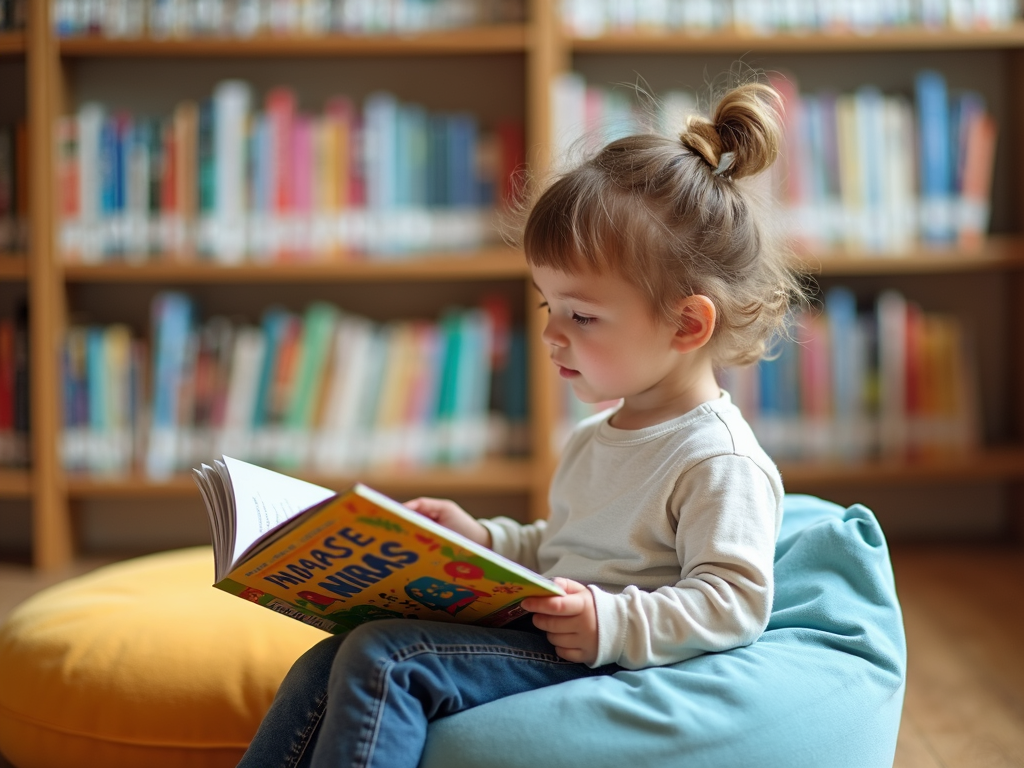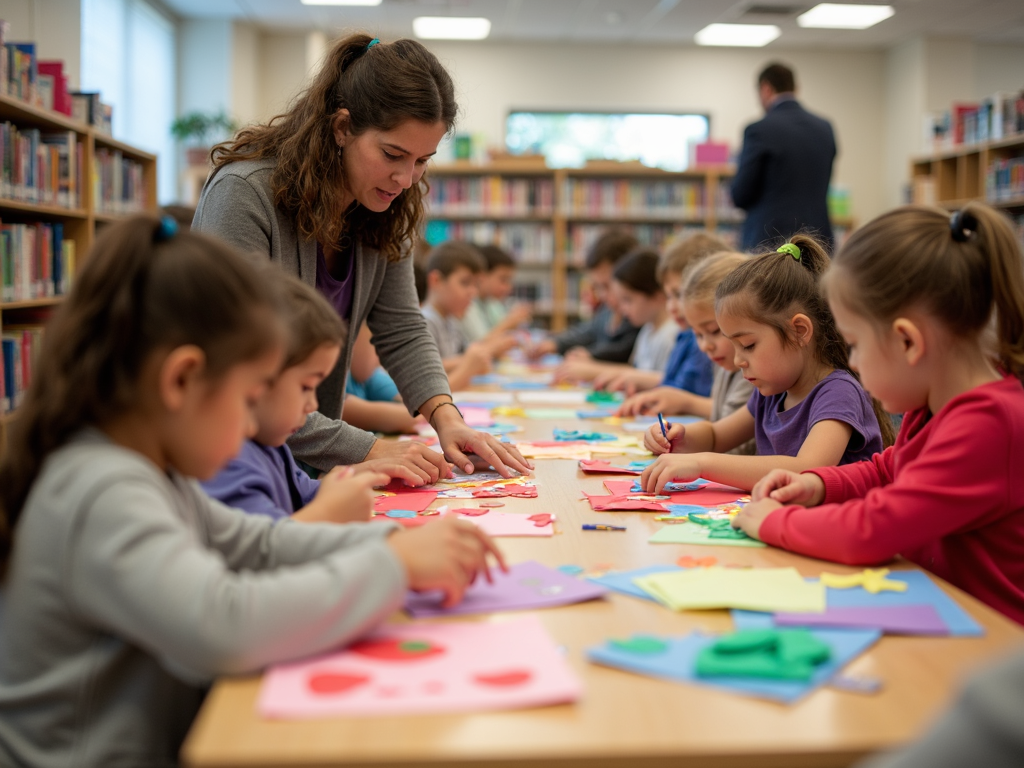In a world where screens dominate our attention, the simple act of reading a book might seem quaint. But for children, reading is nothing short of magical. It opens doors to new worlds, sparks imagination, and lays the foundation for a lifetime of learning. This article explores the myriad benefits of reading for kids, delving into how it shapes their minds, hearts, and social skills. We'll also uncover how local libraries can be a goldmine for family learning experiences and community wellness. So, grab a cozy blanket and a cup of tea, and let's dive into the enchanting world of reading!

The Cognitive Powerhouse: How Reading Boosts Brain Development
Reading is like a gym workout for the brain, especially for young minds. When children read, they engage multiple cognitive processes simultaneously. They're decoding words, visualizing scenes, and making connections between the story and their own experiences. This mental gymnastics strengthens neural pathways, enhancing memory, attention span, and critical thinking skills.
Studies have shown that children who read regularly perform better in school across all subjects, not just language arts. A report by the National Endowment for the Arts found that frequent readers are more likely to excel in math and science, too. It's as if reading primes the brain for learning in general.
But it's not just about academic performance. Reading also fosters creativity and imagination. When kids lose themselves in a story, they're not just passive consumers; they're active participants, co-creating the narrative in their minds. This imaginative play is crucial for problem-solving and innovation later in life.
Emotional Intelligence: Reading as a Window to the Soul
Books are more than just stories; they're mirrors reflecting our own emotions and windows into the feelings of others. For children, reading can be a powerful tool for developing emotional intelligence.
Through characters' journeys, kids learn to identify and understand complex emotions. They see how others cope with challenges, which can help them navigate their own feelings. A study published in the journal Science found that reading literary fiction improves empathy and social perception.
Personal anecdote: I remember reading Charlotte's Web as a child and sobbing when Charlotte died. It was my first encounter with grief, and though it was fictional, it taught me about loss and the cycle of life. Such experiences, though sometimes bittersweet, are invaluable for emotional growth.

Social Skills and Cultural Awareness: Reading Connects Us
Reading isn't a solitary activity; it's a bridge to the wider world. Books expose children to diverse cultures, perspectives, and ways of life, fostering empathy and understanding.
When kids read about characters from different backgrounds, they learn to appreciate diversity and challenge stereotypes. This cultural awareness is crucial in our increasingly globalized world.
Moreover, reading can be a social activity. Book clubs, library events, and even just discussing a story with family members can enhance communication skills and build relationships. It's a shared experience that brings people together.
Libraries: More Than Just Books
Speaking of community, let's talk about libraries. These often-overlooked gems are treasure troves for families. Beyond the shelves of books, libraries offer a wealth of resources and activities that can enrich children's lives and support family wellness.
10 Fun Activities for Kids at the Library
- Storytime Sessions: Interactive storytelling that brings books to life.
- Craft Workshops: Hands-on activities that complement reading themes.
- STEM Programs: Engaging science and technology workshops for curious minds.
- Author Visits: Meet-and-greets with children's book authors.
- Reading Challenges: Incentives to encourage regular reading habits.
- Movie Nights: Screenings of book adaptations or educational films.
- Game Days: Board games and puzzles that promote strategic thinking.
- Music and Movement: Activities that combine literacy with physical activity.
- Coding Clubs: Introduction to basic programming for tech-savvy kids.
- Cultural Celebrations: Events that highlight diverse traditions and holidays.
These activities not only make learning fun but also provide opportunities for socialization and skill-building.

Exploring Local Libraries for Family Learning Experiences
Libraries are more than just places to borrow books; they're hubs for lifelong learning. Many libraries offer programs specifically designed for families, such as parenting workshops, literacy classes, and health and wellness seminars.
For example, the New York Public Library hosts "Family Learning Labs" where parents and children can explore topics like nutrition, mindfulness, and financial literacy together. These programs not only educate but also strengthen family bonds.
Moreover, libraries often partner with local organizations to provide additional resources. From free museum passes to discounted theater tickets, libraries can be a gateway to cultural experiences that might otherwise be inaccessible.
Community Resources for Family Wellness
In today's fast-paced world, family wellness is more important than ever. Libraries play a crucial role in supporting mental and physical health through their offerings.
Many libraries have dedicated wellness sections with books on parenting, stress management, and healthy living. Some even host yoga classes, meditation sessions, or cooking demonstrations.
Additionally, libraries often serve as community centers, providing a safe space for families to gather, learn, and connect. This sense of belonging can be incredibly beneficial for mental health, especially for families who might feel isolated.

Making Reading a Family Affair
While libraries are fantastic resources, the love for reading starts at home. Here are some tips for making reading a cherished family activity:
- Set Aside Reading Time: Dedicate a specific time each day for family reading.
- Create a Cozy Reading Nook: A comfortable space can make reading more inviting.
- Let Kids Choose: Allow children to pick books that interest them.
- Read Aloud: Even older kids enjoy being read to; it can be a bonding experience.
- Discuss Books: Talk about what you're reading; it enhances comprehension and critical thinking.
- Lead by Example: Let your kids see you reading; modeling is powerful.
Remember, the goal isn't to force reading but to foster a genuine love for it. Make it fun, make it frequent, and watch the magic unfold.
Conclusion: The Lifelong Gift of Reading
Reading is more than a pastime; it's a passport to a richer, more fulfilling life. For children, the benefits are profound and far-reaching, touching every aspect of their development. From sharpening their minds to nurturing their hearts, reading lays the groundwork for success and happiness.
Libraries, with their wealth of resources and community spirit, amplify these benefits. They're not just buildings with books; they're vibrant centers for learning, growth, and wellness.
So, whether you're curling up with a book at home or exploring your local library, remember that every page turned is a step toward a brighter future for your child. Happy reading!
Discuss Here